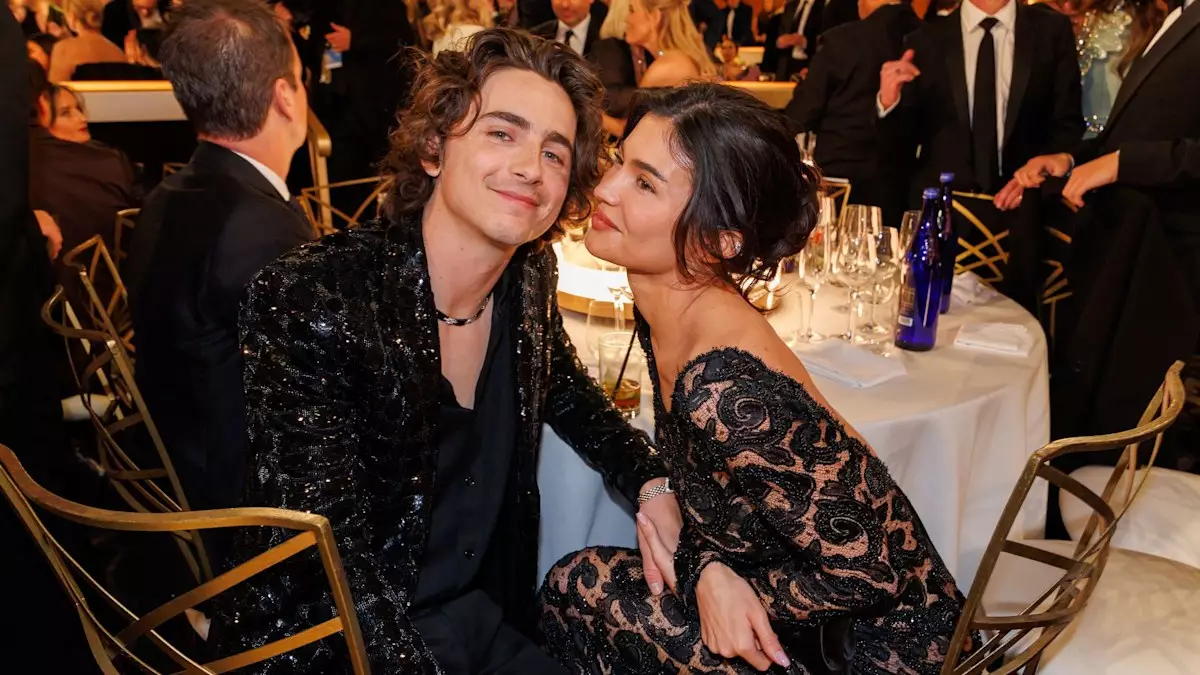The recent Golden Globes event sparked a flurry of online discussions revolving around the romantic display between Timothee Chalamet and Kylie Jenner. While their affectionate gestures drew attention, it was Kylie’s subdued makeup look that caught the eye of many observers. Stepping away from her usual full-glam aesthetic, the 26-year-old beauty mogul opted for a more natural appearance. However, amidst the flurry of praise for her toned-down makeup, there lingered a subtle undercurrent of backhanded compliments.
The Problematic Nature of Unwanted Critiques
Numerous commenters took the opportunity to express their opinions on Kylie’s change in makeup style. One person remarked, “She’s wearing less makeup and looks so much better,” while another commented, “It’s so nice seeing Kylie looking more natural.” Such remarks appear on the surface to be compliments but are veiled critiques. By proclaiming that Kylie looks better with less makeup, these comments indirectly criticize her usual heavily made-up look. This type of judgment perpetuates the notion that wearing a significant amount of makeup is something to frown upon—it implies that it diminishes the person wearing it.
Respecting Individual Beauty Choices
Passing judgment on Kylie’s beauty choices is not our place as observers. It is worth remembering that Kylie has publicly spoken about how criticism regarding her “thin” lips fueled her decision to undergo filler injections as a teenager. In a 2015 episode of Keeping Up With The Kardashians, she revealed, “I had an insecurity because this guy said something to me one time. Then I got an obsession with makeup because I would over-line my lips, and it just made me feel confident.” Kylie’s initial decision to explore makeup stemmed from her desire to enhance her self-confidence in response to external judgments. Therefore, it seems misguided to suggest that her current makeup choices are solely influenced by her relationship with Timothee.
By insinuating that Kylie adapted her appearance to match Timothee’s preference for natural beauty, commentators undermine her agency as an adult woman. The suggestion that she would significantly alter a core aspect of her identity for the sake of a romantic partner discredits her autonomy and independence. Wearing makeup has been a defining characteristic of Kylie’s persona and has played a pivotal role in the success of her million-dollar business, Kylie Cosmetics. Criticizing her trademark look not only devalues her perception of self but also undermines the empire she has built around her love for makeup.
Donna Francis, a beauty expert for HELLO!, aptly points out that the makeup choices we make have a profound personal connection to our personalities and moods. Similar to how we select our outfits daily, our decision regarding makeup reflects our inner state at a given moment. It is essential to recognize and respect this deeply personal aspect of makeup. Using backhanded compliments to pass judgment on someone’s makeup choices is reductive and dismissive of their autonomy and self-expression.
The online commentary surrounding Kylie Jenner’s Golden Globes appearance and her departure from her usual full-glam makeup arrived heavily laden with backhanded compliments. While some may argue that they were well-intentioned, it is crucial to critically analyze the implications of such remarks. Disguising critiques as compliments perpetuates the idea that wearing more makeup is inherently inferior, disregarding the personal significance makeup holds for individuals. It is vital to celebrate and respect personal beauty choices, acknowledging that they form an integral part of someone’s identity and self-expression.

